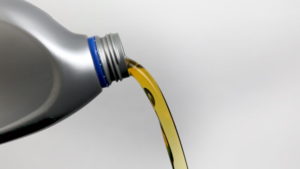
Many car owners are aware of the fact that an oil change will affect how their vehicle performs and lasts over time. What some people don’t know is that changing your oil can also have a positive impact on the gas mileage of their car or truck as well. In your engine, the lubricating properties perform a variety of vital functions that not only keep your car running but also determine how efficiently it does its job. By making sure you perform this routine maintenance, you avoid a variety of efficiency-robbing conditions:
Oil Breakdown
As engine oil ages, it breaks down. This means it becomes less and less effective at doing its job. Over time, heat damages the molecules in the oil that govern things like viscosity (oil thickness) and lubricating ability. It’s necessary for oil to maintain its viscosity because many of your engine’s parts are cushioned by a thick coat of oil. Without proper viscosity, the lubrication abilities of the oil are useless because it can’t get where it needs to go. As these properties are lost the engine will run hotter and less efficiently, which negatively effects gas mileage.
Sludge Build-Up
Once oil breaks down, it begins to leave deposits on the interior surfaces of the engine. These deposits are commonly referred to as “sludge” or “scaling.” Engine sludge has a variety of negative effects on an engine. It interferes with the proper flow of oil throughout the engine by blocking passageways and coating surfaces. This means that the motor may not get the proper amount of oil on its working components. In addition, sludge and scaling reduce the transfer of heat away from the engine. By creating an additional layer of material on surfaces inside the engine sludge and scaling hold heat in; which not only has a negative effect on your mileage, it may reduce the service life of your car’s motor.
These are just two examples of what happens once your car has gone too long without a change. Skipping maintenance will affect virtually every part under your hood, which affects the efficiency your car can achieve (read: gas mileage). Fortunately even if you haven’t been as diligent in the past as you should have been with performing routine maintenance, it is possible to reverse some of the negative effects of neglect. Figure out when your last oil change was; then talk to your mechanic about it. A good shop should have a variety of service options that are tailored specifically to help improve your engine’s function if it was neglected.
Once you’ve had your car checked out, remember that the best way to keep it running efficiently is to keep it well maintained. Make a maintenance schedule and stick to it. The best first step for making a maintenance schedule is to check out your owner’s manual and follow the recommended service intervals. That’s the single most important thing you can do to make sure your car is running the best that it can.
SOURCE: carsdirect
